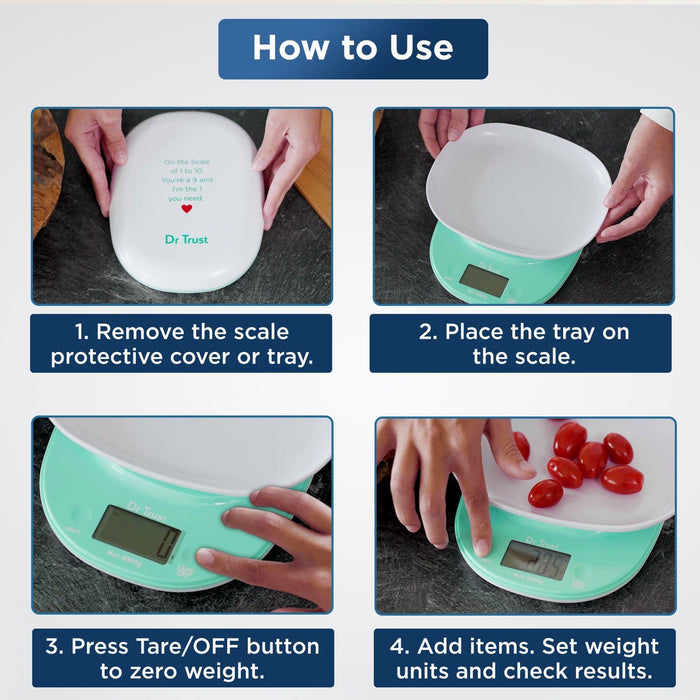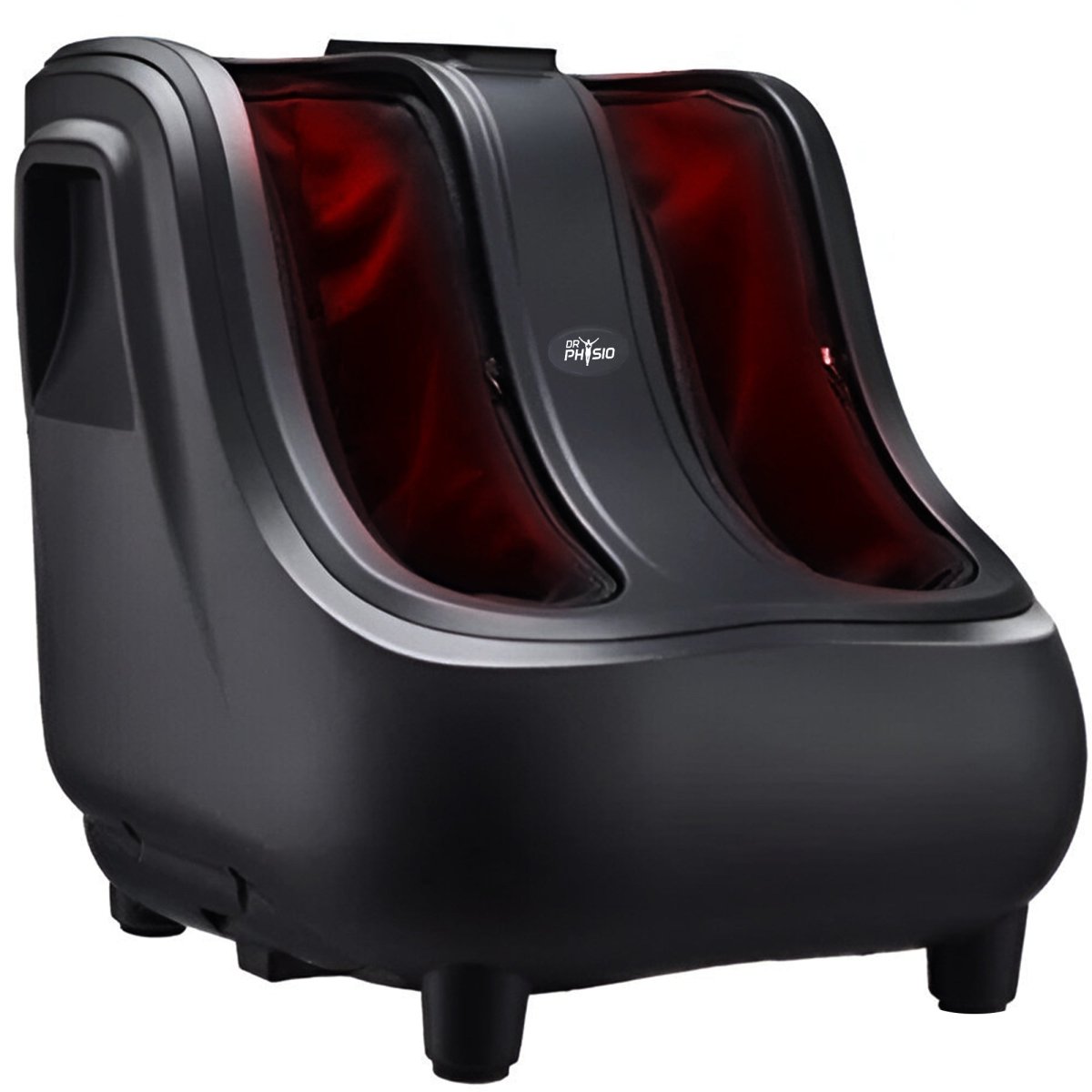Maintaining a healthy diet and achieving portion control can be challenging, especially when it comes to accurately measuring food. Kitchen scales can be a game-changer in this regard, offering precision that helps with both cooking and baking. In this article, we'll explore how to use a kitchen scale for portion control and healthy eating, delve into the importance of accurate measurements in cooking and baking.
The Importance of Accurate Measurements in Cooking and Baking
Consistency in Recipes: Accurate measurements ensure that your recipes turn out consistently every time. Baking, in particular, requires precision because even slight deviations can affect the texture, flavor, and appearance of the final product. For example, too much flour can make your cake dense, while too little can result in a flat and undercooked dessert.
Nutritional Accuracy: When following a diet plan, knowing the exact amount of food you consume is crucial. Accurate measurements help track calories, macronutrients, and portion sizes, making it easier to adhere to dietary goals. This is especially important for those managing conditions like diabetes or heart disease.

Cost Efficiency: Using the right amount of ingredients means less waste and more cost-effective meal preparation. When ingredients are measured precisely, you only use what’s necessary, avoiding the need for frequent grocery trips and reducing food wastage.
Enhancing Flavor: Balancing flavors in cooking often relies on precise measurements. Too much or too little of an ingredient can significantly alter the taste. Accurate measurements help ensure that your dishes are flavorful and well-balanced.
Tips and Benefits of Using a Kitchen Scale for Portion Control and Healthy Eating
Understanding Portion Sizes: Using a kitchen scale helps you understand and control portion sizes. For example, measuring out a serving of meat or pasta can prevent overeating and help maintain a balanced diet. It eliminates the guesswork and provides clear, accurate portions.
Calorie Counting: Accurate measurements are essential for calorie counting. By weighing your food, you can determine the exact number of calories in each portion, making it easier to stick to your daily calorie limit. This is particularly useful for weight management.
Balanced Meals: A kitchen scale can help you achieve a balanced diet by ensuring that you include the right proportions of different food groups. Weighing ingredients like vegetables, proteins, and grains ensures that each meal is nutritionally balanced.
Recipe Scaling: If you need to adjust a recipe to serve more or fewer people, a kitchen scale makes it easy. You can scale ingredients up or down with precision, ensuring that the recipe maintains its intended flavor and texture.
Better Baking Results: As mentioned earlier, baking requires precise measurements. A kitchen scale ensures that you use the exact amount of ingredients, leading to better results and fewer baking mishaps.
How to Use Your Kitchen Scale
Zero the Scale: Place your empty container or bowl on the scale and zero it out. This ensures that you only measure the weight of the food, not the container.
Weighing Ingredients: Add your ingredients to the container. The scale will display the weight, allowing you to measure precisely. For dry ingredients like flour, it's best to spoon them into the container to avoid packing and inaccurate measurements.
Tare Function: If your scale has a tare function, you can zero the scale again after adding each ingredient. This is useful for measuring multiple ingredients in the same container without having to do any math.
Switching Units: Many kitchen scales allow you to switch between units (grams, ounces, pounds). Use the unit that is most convenient or specified in your recipe.
Recommendation: Dr Trust Kitchen Scale
Investing in a quality kitchen scale, can make a substantial difference in your culinary and dietary endeavors. If you are looking for a reliable and precise kitchen scale, the Dr Trust kitchen scales are excellent options to choose:
- Easy-to-read Display: A clear digital display that shows accurate readings.
- Tare Function: Allows for easy zeroing of the scale for precise measurements.
- Multiple Units: Switch between grams, ounces, and other units with ease.
- Compact and Durable Design: Easy to store and built to last.
- Irregular Heartbeat Detection: Some models come with additional health monitoring features, adding extra value to your purchase.
FAQs about Kitchen Scales
Q. 1. What is a kitchen scale used for?
A kitchen scale is used for measuring the weight of food and ingredients accurately. This helps in precise portion control, calorie counting, and ensuring consistency in cooking and baking.
Q. 2. Is a kitchen scale worth it?
Yes, a kitchen scale is worth it for anyone looking to improve their cooking accuracy, manage portion sizes, and maintain a healthy diet. It provides precision that measuring cups and spoons can't offer.
Q. 3. How to read 1 gram on a scale?
To read 1 gram on a kitchen scale, ensure it is set to grams (g) as the unit of measurement. Place the item on the scale and it will display the weight in grams, showing 1g if the item weighs exactly one gram.
Q. 4. How do I read my kitchen scale?
To read your kitchen scale, turn it on, select the desired unit of measurement (grams, ounces, pounds), and place the item or container on the scale. The display will show the weight of the item. Use the tare function to zero out the weight of any container used.
Q. 5. Why should I use a kitchen scale instead of measuring cups?
Kitchen scales provide more accurate measurements compared to measuring cups, which can vary due to packing and leveling. This precision is especially important in baking and for managing portion sizes.
Q. 6. Can a kitchen scale measure both dry and liquid ingredients?
Yes, most kitchen scales can measure both dry and liquid ingredients. Some scales even have a liquid measurement mode for added convenience.
Q. 7. How do I clean my kitchen scale?
To clean your kitchen scale, wipe it with a damp cloth. Avoid submerging it in water or using harsh chemicals, as this can damage the electronic components.
Q. 8. Can I use a kitchen scale for weighing food portions for diet plans?
Absolutely. Kitchen scales are ideal for measuring food portions accurately, helping you stick to diet plans and manage your calorie intake effectively.
In conclusion, a kitchen scale is an indispensable tool for anyone looking to maintain a healthy diet and achieve portion control. It provides the precision needed for consistent cooking and baking, helps manage portion sizes, and supports nutritional accuracy.












